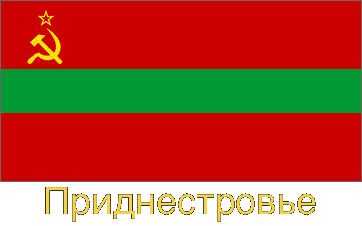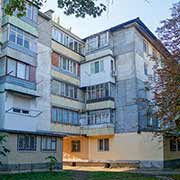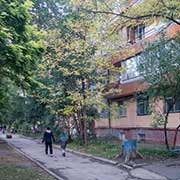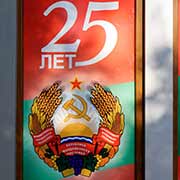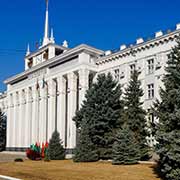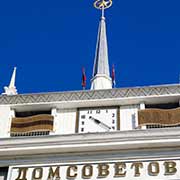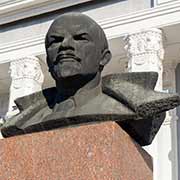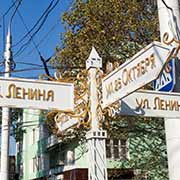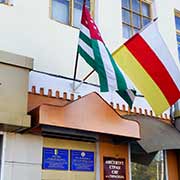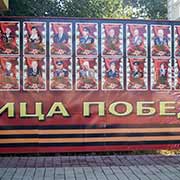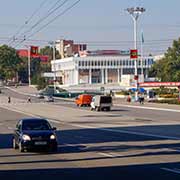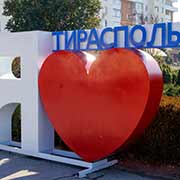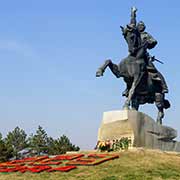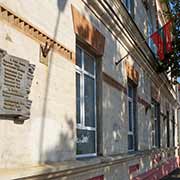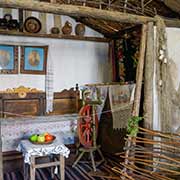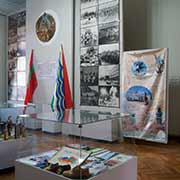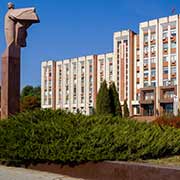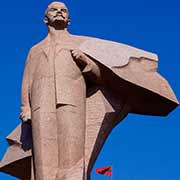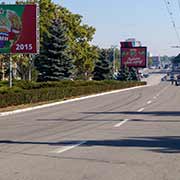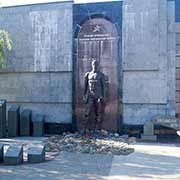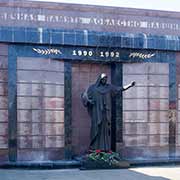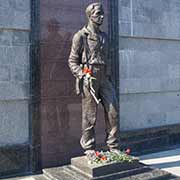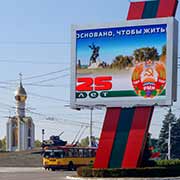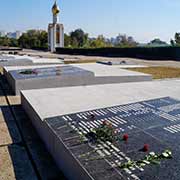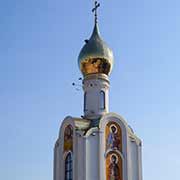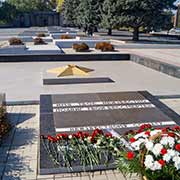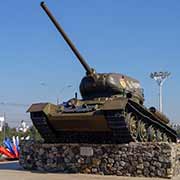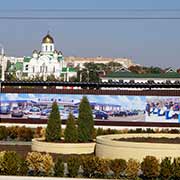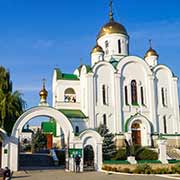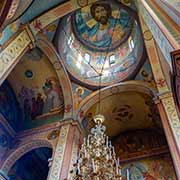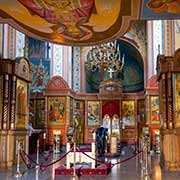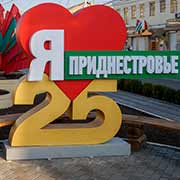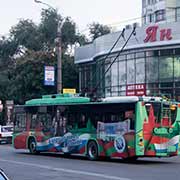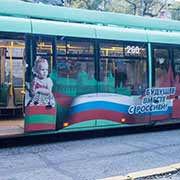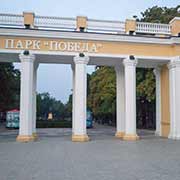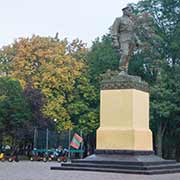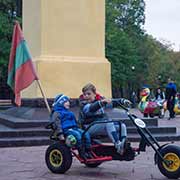Photos of Tiraspol, the capital of Transnistria, Moldova
Tiraspol, the capital of Transnistria
Tiraspol is officially and internationally recognised as the second-largest city in Moldova. However, in effect, it is the capital of the unrecognised Pridnestrovian Moldavian Republic (PMR) situated on the east bank of the Dniester. Seen from Moldova, the region is on the “other” side of the river. The rest of the world designates it as “Transnistria”.
you may then send it as a postcard if you wish.
This region had been part of Ukraine between the two World Wars but then joined the Moldavian Soviet Socialist Republic. It had a sizeable Russian and Ukrainian population (resp 32% and 30% of the total), and when after the breakup of the Soviet Union, Moldova became independent, adopted Romanian as its official language, and there was talk of reuniting with Romania, this narrow strip of land broke away. It declared its independence on 2 September 1990. War broke out between Transnistrian separatists and the Moldovan Army; in 1992, the Russian Army entered on behalf of the separatists, brokered a ceasefire on 21 July 1992 and a contingent Russian “Peacekeeper troops” stay until today. It is now a “frozen conflict”, and only similar unrecognised breakaway states recognise Transnistria: Abkhazia, Nagorno-Karabakh and South Ossetia - the consulate of two of them, in the same building, is along the main 25 October Street.
The city of Tiraspol was founded by the Russian generalissimo Alexander Suvorov in 1792; his statue is in the park along the main street. On 27 January 1990, the citizens in Tiraspol passed a referendum declaring the city as an independent territory with the nearby town of Bendery. It remains stuck in Soviet symbolism: its City Hall, the “Dom Sovietov” (House of the Soviets), is a Stalinist edifice, proudly topped by a communist-style star and a bust of Lenin in front. The Supreme Council of the PMR also has a sizeable modernist statue of Lenin, in a billowing coat, in front. The Memorial of Glory Square (Hero’s cemetery) with the Monument for the Unknown Soldier remembers the fallen in the 1990-1992 war with Moldova, as is a large monument with the names of those; a statue of a soldier honours the “Defenders of Transnistria” who perished during the war. A tank with the slogan “Za Rodina!” (For the Fatherland) is also displayed. There is also a monument to those fallen during the war the Soviet Union waged in Afghanistan between 1979 and 1989.
The Museum of Local History displays items of life in the old days and objects and photographs about the formation of the breakaway state in 1990. The 25 October Street (named for the date when the Communist Revolution started in 1917) is brightly decorated with slogans and flags, as common during Soviet days. Yet, the churches are beautifully maintained: the Nativity Church (Cathedral of the Birth of Christ) is the largest and newest in Tiraspol, a Russian Orthodox Church completed in 1999. St. George Chapel stands overlooking the Memorial of Glory Square. There is no doubting the opinions of Tiraspol people: the trolleybuses, in the colours of the PMR flag, display the slogan “In future together with Russia!”
